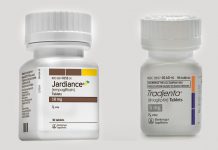A new study published Monday in JAMA Internal Medicine has found that some older adults with prediabetes will actually develop type 2 diabetes.
The findings suggest that prediabetes is one of the useful predictors of diabetes risk in young and middle-aged adults, but that is not the case when it comes to older individuals.
Senior study author Prof. Elizabeth Selvin said, “Our results suggest that for older adults with blood sugar levels in the prediabetes range, few will actually develop diabetes. The category of prediabetes doesn’t seem to be helping us identify high-risk people.”
Prof. Selvin is an epidemiologist at Johns Hopkins Bloomberg School of Public Health in Baltimore.
Prediabetes is a condition characterized by high blood sugar levels but not that high for a diabetes diagnosis.
The researchers looked at nearly 3,500 Americans between the ages 71 and 90 years with no history of diabetes. They were assessed from 2011 to 2013. At that time, nearly 60% were found to have prediabetes based on results of the impaired fasting glucose test (IFG) and 44% were found to have prediabetes with impaired glycated hemoglobin (HbA1c) test.
The participants were assessed again in 2016 and 2017. The team found that “8% of IFG-defined prediabetics and 9% of HbA1c-defined prediabetics had developed diabetes,” according to Medicine Net.
If poorly controlled, type 2 diabetes could lead to chronic complications, such as heart disease, kidney disease, neuropathy, retinopathy, gangrene, among other conditions.
Prof. Selvin said doctors should advise diabetic patients to focus on a healthy lifestyle, such as eating healthy, exercising, losing weight, and managing stress.
Prediabetes is a potential indicator of increased diabetes risk in younger and middle-aged people. Prof. Selvin said, “It’s very common for older adults to have at least mildly elevated blood glucose levels, but how likely they are to progress to diabetes has been an unresolved question.”





















